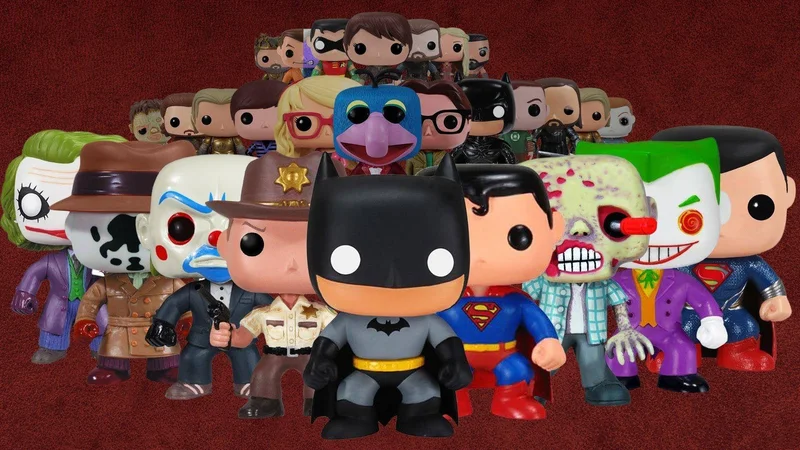Title Fulfillment: Funko's Q3 "Success" Is a Smoke Screen
Funko, the purveyor of pop culture figurines, is facing a grim reality. Recent headlines scream about a potential collapse, but are things really that dire? A look at their Q3 2025 financials, and the surrounding narrative, suggests a more nuanced picture—one where clever accounting and desperate gambles mask deeper, systemic problems.
The Illusion of Improvement
The initial read of Funko's Q3 report offers a glimmer of hope. Losses narrowed from a staggering $41 million in Q2 to just under $1 million. CEO Josh Simon trumpets this as evidence of their "Make Culture POP!" strategy working. But let's dissect that claim. Revenue plummeted year-over-year, from $292.8 million to $250.9 million. That's a 14.3% drop (I'll save you the calculator work). How can a company lose revenue at that rate and simultaneously claim things are improving?
The answer lies in cost-cutting. Funko has aggressively slashed expenses, particularly by reducing inventory and streamlining product lines. This is a classic "slash and burn" strategy, and while it can temporarily boost the bottom line, it's hardly a sustainable path to long-term growth. It's like a dieter who starves themself to fit into a dress for one night – impressive in the short term, but disastrous in the long run. The question is, can they actually grow revenue again, or are they just managing the decline?
Another factor is the success of the Bitty Pop! line, which earned a spot on Walmart’s 2025 Top Toy List. But let's be real: Bitty Pops are essentially smaller, cheaper Funko Pops. Are they cannibalizing sales from the main line? Are they attracting new customers, or just getting existing collectors to buy more, smaller items? And is that enough to offset the broader decline? (My gut says no).
The Netflix Gamble and the Sale Option
Funko is pinning its hopes on a collaboration with Netflix, specifically a "KPop Demon Hunters" line slated for the 2025 holiday season. This is a high-stakes bet on a specific trend. If "KPop Demon Hunters" doesn't resonate, Funko is left with even more unsold inventory and a tarnished brand.

And this is the part of the report that I find genuinely puzzling. The company is also exploring a potential sale. Usually, companies announce partnerships after a sale to sweeten the deal. Announcing a potential sale before the Netflix deal plays out suggests a lack of confidence in the collaboration's success. It's like admitting you're already looking for a lifeboat before the ship hits the iceberg. The filing also mentions "strategic alternatives," a corporate euphemism that could mean anything from restructuring to bankruptcy. Funko on the Brink of Collapse: Pop Culture Empire Admits It Might Shut Down Within a Year After Massive Financial Meltdown
The analyst consensus on FNKO stock is currently "Hold" with a $3.00 price target. That's hardly a ringing endorsement, and Spark, TipRanks’ AI Analyst, rates the stock as "Neutral," citing "weak financial performance, characterized by declining revenue, negative profitability, and high leverage." That's a polite way of saying "stay away."
The company claims that its excessive number of licenses is a financial strain. But how much revenue do they actually generate from licenses? And could they license their own IP to others? Why hasn't this been done?
Smoke and Mirrors, But the Fire Still Burns
Funko's Q3 "success" is a mirage. While cost-cutting and the Bitty Pop! line have temporarily stemmed the bleeding, the underlying problems remain: declining sales, a challenging retail environment, and an over-reliance on licensed properties. The Netflix gamble is a long shot, and the potential sale suggests a lack of confidence in the company's future.
The real question is: Can Funko adapt to a changing market, or will it become another casualty of the pop culture bubble?
The Numbers Don't Lie
Funko's numbers paint a clear picture: a company in distress, desperately trying to regain its footing. The "Make Culture POP!" strategy sounds good on paper, but it's not translating into revenue growth. Unless Funko can fundamentally change its business model, it's hard to see a happy ending for the Funko Pop empire.
